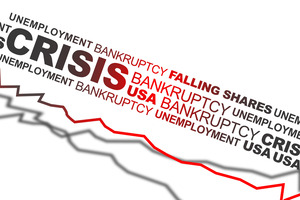Debt Consolidation Tampa Florida
Americans have historically loved to rack up debt – so much that the average household has nearly $15,000 in credit-card debt.
But today’s staggering consumer debt loads are usually about a lot more than shopping sprees. The economy has taken a very serious downturn, bringing job losses and the disappearance of accompanying medical insurance benefits. Sinking house values have wiped out homeowners’ equity.
In this unstable financial climate, people have maxed out their credit to handle medical crises, divorces and debt schedules that were manageable in good times. In these difficult times, paying off mountains of personal debt has become downright impossible for many individuals and families. Among the millions of Americans who can’t pay their bills, many have considered turning to questionable debt-consolidation firms that promise the moon and the stars.
Their advertisements may claim that they can erase much of your debt simply by having you make regular payments to them, and promising to negotiate lower principal and interest payments with your creditors. However, the reality of the situation is often far bleaker. For example, many of these firms charge high upfront fees; and often pay themselves first out of your money and apply small amounts, if anything at all, to your debt.
They may get your debt consolidated into a smaller overall monthly payment, but because of more interest due over a longer debt term, in many cases, you’ll end up paying more when all is said and done than the cumulative debt you started out with.
Federal Action
The Federal Trade Commission is the main U.S. governmental agency fighting for consumer protection and the FTC has responded in a big way to reign in unscrupulous debt-relief services. Federal law gives the agency real power to investigate violations of consumer protection laws, and to enforce them through the agency itself or through the federal courts.
According to April 2010 FTC testimony before Congress, stopping abusive debt-relief practices is one of the FTC’s top priorities in these hard times, and investigation and enforcement actions have been vigorous. FTC Commissioner Julie Brill testified that almost 500,000 consumers have gotten relief from financial exploitation through 20 FTC lawsuits brought in the previous seven years against deceptive debt-relief firms.
The FTC also has the power to enact consumer-protection regulations that affect entire industries. Currently the agency is in the final stages of the rulemaking process to enhance its Telemarketing Sales Rule in ways that would help prevent misrepresentation and abuse by more tightly controlling what debt-relief services can say and promise over the phone to potentially vulnerable consumers.
Action by the State of Florida
In the past couple of years, the FTC has actively partnered with several state governments to clean up the practices of abusive debt-relief firms. As part of this initiative, the Florida Attorney General has filed several significant lawsuits based on violations of state and federal laws by these firms. In one suit, the firm charged its victims exorbitant upfront fees in exchange for promises of undeliverable financial-relief services. In another action, the firm misrepresented that it could settle consumer debts for greatly reduced amounts.
Many financially victimized consumers have received financial relief through these lawsuits brought by the Florida Attorney General.
Don’t Go It Alone
Even when debtors sign up with sometimes more credible, nonprofit credit-counseling services, many individuals are unable to maintain the payment schedules established with creditors that can take years to pay off. Depending on the amount of debt you have along with your ability to pay, experts say it may be wiser to simply contact your creditors directly yourself to work out realistic payment plans.
In the event that you really can’t pay your bills, even after trying to negotiate with your creditors, it’s wise to contact an experienced bankruptcy attorney who is a consumer advocate. Your lawyer can explain your legal options, assist you with stopping creditor harassment, and help you decide whether bankruptcy or dealing with your debt in another way is the best option.




























![Signs That You May Need to File Bankruptcy [Infographic]](https://djml3wkzi26ea.cloudfront.net/wp-content/uploads/2021/01/signs-chap7-v-chap13.jpg)
![How To File for Bankruptcy [Infographic]](https://djml3wkzi26ea.cloudfront.net/wp-content/uploads/2020/07/bankruptcy-steps-infographic-web.jpg)










